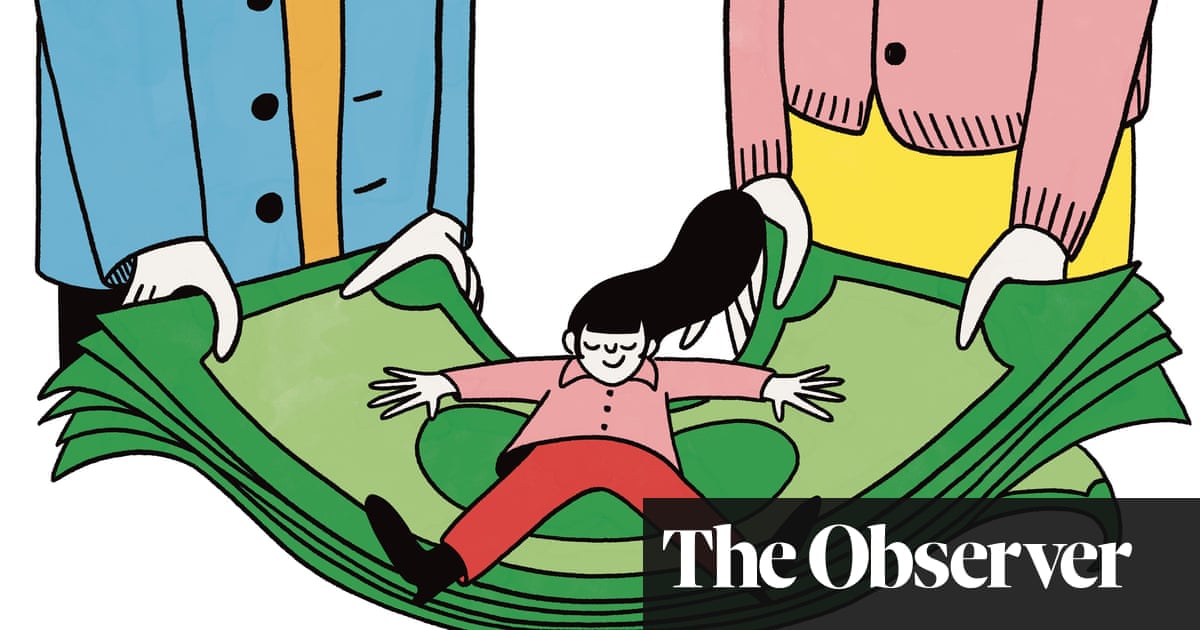You know the Bank of Mum and Dad when you see it: it’s your friend who seems broke, but always has a safety net, or who suddenly (but discreetly) acquires the deposit for a home. It’s those who stayed with their parents while they saved for a flat, or stuck it out in a profession they were passionate about even though the wages are chronically low. It’s those who do not need to consider the financial costs of having children. It’s those whose grandparents are covering nursery or university fees, with the Bank of Grandma and Grandad already driving an economic wedge between different cohorts in generations Alpha (born between 2010 and 2024) and Z (born in the late 1990s and early 2000s).
This is the picture we know, but the Bank of Mum and Dad is not just a luxury confined to the 1% – it is also evident in families like mine. I grew up in a working-class household and was the first person in my family to get a degree, but it was the fact my parents had scrimped in the 1980s to purchase properties in London (and allowed me to crash in one throughout my 20s) that has arguably been the true source of opportunities in my life.
In recent years, we have rightly widened the conversation about privilege in society. And yet how honest are we about one of the most obvious forces shaping anyone under 45: the presence or absence of a parental safety net? The truth is that we live in an inheritocracy. If you’ve grown up in the 21st century, your opportunities are increasingly determined by your access to the Bank of Mum and Dad, rather than by what you earn or learn. The economic roots of this story go back to the 1980s, but it accelerated after the 2008 financial crisis, as private wealth soared and wage growth stalled. In the 2020s, rather than a meritocracy – where hard work pays off – we have evolved into an inheritocracy, based on family wealth.



My parents blew up any inheritance I would’ve ended up with due to bad decisions and shit luck.
Now my mom depends on me during her final years as we cruise the stars in a two-bedroom apartment.
A lot of my friends live together and share rent. Some with their parents, and a minority got hitched and live with a spouse. It seems like a lot of people depend on small family groups these days.
Multigenerational homes, or living with a bunch of people, was the norm until less than a hundred years ago. It was only a brief period of time of immense economic and technological growth that we saw people living independently in large numbers. We’re just watching a regression back to the mean. And I don’t know how we avoid it with a growing population, and not everyone wanting or willing to live in a city.
Those tiny, single-person tubes in Japan where one just pays rent for a tube to sleep in and a storage unit would do me fine.
I’d sleep in a hollow log if it meant not sleeping there with another person.
And this is why it’s good to have a ton of different options - and preferably a society that accepts them all.
Honestly, if you’re family is okay, not living with them because you don’t want to seem lame was always a dumb use of resources. That might be one of the stupidest things white people ever invented, and we did savoury salads embedded in jello.
Thing is, if I want to run around naked the whole day I want to be able to do that. If I come home absolutely shitfaced at 8am I don’t want my parents to comment on that. If I want to have loud sex I want to be able to do that. It used to be normal but it absolutely sucks to have no privacy and I don’t want to go back to that as a grown up.
Maybe other than getting shit-faced and coming home at 8am, everything you describe has been something humans have been dealing with forever. We can make it work again.
I also totally agree with you, I don’t want to go back. . . I just understand that I have to pay for that privilege. lol